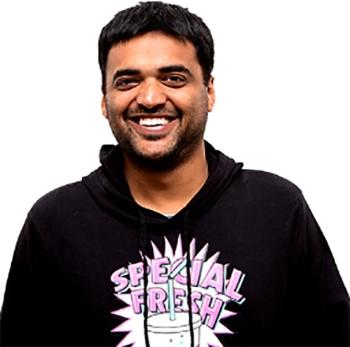 ‘I advise people to stay away from secondary IPOs. There is a big conflict of interest between the exiting and incoming investors’
‘I advise people to stay away from secondary IPOs. There is a big conflict of interest between the exiting and incoming investors’
Zomato founder and Chief Executive Officer Deepinder Goyal said on Friday that investors should be wary of companies that have a large secondary component in their initial public offerings (IPOs).
“Around 95-98 per cent of our IPO was primary fundraise. In secondary IPOs, there is a pressure to price it higher than they should be so that people can make money. I advise people to stay away from secondary IPOs. There is a big conflict of interest between the exiting and incoming investors,” Goyal said at a webinar organised by CII.
Despite a large IPO size of Rs 9,375 crore ($1.3 billion) at a valuation of around Rs 60,000 crore (over $8 billion), Zomato’s issue was subscribed 38 times in July. Its share price soared more than 80 per cent over the issue price on the listing day.
The Zomato CEO also talked about an e-mail from Info Edge founder Sanjeev Bikhchandani on how the company should price its IPO. Info Edge was one of the earliest investors in Zomato and still holds more than 15 per cent in the foodtech company, which currently has a market capitalisation of over Rs 1 trillion.
“People say Zomato priced its IPO really well. What’s happening to other IPOs. Sanjeev (Bikhchandani) sent us a very long email on how we should price our IPO. He said leave enough money on the table. Whenever there is a downcycle, everybody who buys into your IPO should be above water. If you have a bad quarter and everyone wants to sell, then you are done for,” said Goyal.
Info Edge wrote Zomato's first cheque of Rs 4.7 crore in 2010 and was its only investor in the first four funding rounds.
He also said that going public has helped the company focus on its long-term strategy better as private investors dig deeply on a business’ performance on a weekly basis.
“We have had an experience which is opposite of what people said we would have. Private market people ask for weekly data. Now, it is quarterly which is 12x longer term. I would say life is now more rational. We can focus on the overall business and ignore some small buckets for the moment,” he said.
Goyal also said Indian companies have a responsibility to list on Indian bourses and participate in wealth creation in the country.
“If more companies go public here, they will get bigger and support the country’s growth. Our ability to hire and capital allocation is better now. But life is hard this way or that way. It is just a different kind of winter,” he said.










